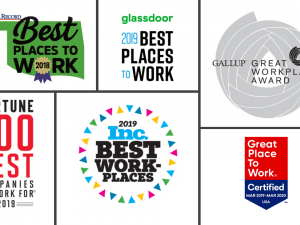

Credit: Pinterest.com
Before taking a position with a new company, how does one avoid a toxic company culture? Applicants are well within their rights to interview past and current employees to obtain honest feedback on the real company culture; not the culture advertised to the public.
If you are not allowed to interview the current employees of your choice, this could be a sign your future employer is trying to hide a toxic workplace.
24 Signs of a Toxic Company Culture
#1 Employees are not allowed to voice their honest opinion on workplace issues.
#2 Employees fall in or out of leadership’s favor without explanation, and as a result, are included or excluded from company events, projects or meetings.
#3 Employees with opposing viewpoints are not welcomed visitors to the executive suite.
#4 Employees are fired without warning or explanation, nor are they given the opportunity to address the real issues leading to their departure.
#5 Receptionists and assistants tend to be beautiful, attractive eye-candy for chauvinistic executives.
#6 Overweight people are routinely urged by leadership to lose weight and made to feel inferior to their slender coworkers.
#7 Employees are expected to assume heavier workloads and work excessive overtime while legitimate requests for headcount increases are denied, all while the company is publicly promoting the importance of work/life balance.
#8 Employees with excellent reputations are abruptly fired or transferred because their performance is suddenly unsatisfactory.
#9 The human resources department is viewed by leadership as an administrative function or transaction facilitator rather than a partner in developing great people and work environments.
#10 The human resources department merely follows orders from leadership and is afraid to question company practices.
#11 Rude behavior is routinely allowed.
#12 Employees who treat people with trust and respect are considered weak and not management material.
#13 Tough, no-nonsense supervisory behavior is rewarded.
#14 Executives are assigned reserved parking spaces.
#15 The CEO and his/her executive team rarely walk around the office to visit with employees.
#16 Company information or news is not consistently shared with the entire workforce.
#17 Employees routinely read breaking news about their company on online news services rather than internal company communications.
#18 Press releases are distributed to public media outlets prior to employee distribution.
#19 Political views of the leaders are expressed to employees, and the employees are expected to blindly support and/or vote for those causes.
#20 Executives have their own restrooms.
#21 The company has a code of conduct policy but does not provide regular training to leaders or employees.
#22 Employees are expected to intuitively know what is expected from them without explanation and can be disciplined for not following these unwritten rules of conduct or performance.
#23 Employees who raise legitimate company issues are summarily terminated without cause.
#24 Executives hire C-level and professional staff outside the approved recruiting process and do not carefully consider the recruit’s management style or their potential impact on company culture.




